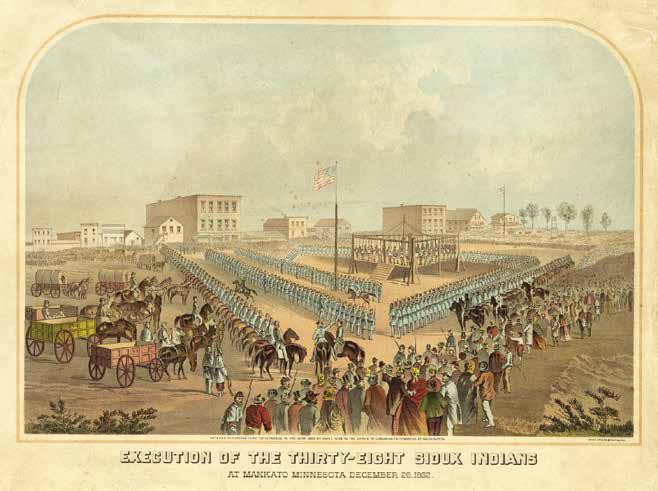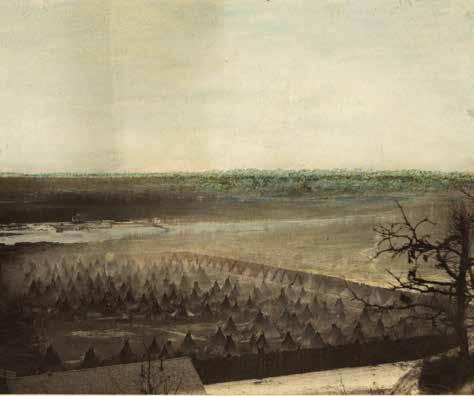
16 minute read
On Writing and Thinking in Science
Cover Photo: Cellulase Chomper by Arwa Abbas. This drawing deliberately conveys scientifically important ideas. Beautiful art is useful for instruction as well as of value in and of itself, and the analogies deepen understanding.
By Peter Kahn
Advertisement
WHAT IS THE PROBLEM?
There is a growing clamor around the country to induce students to study “STEM” subjects: science, technology, engineering and mathematics. Along with that clamor usually goes a devaluation of humanities subjects such as English literature, history and philosophy. “Why study those? They don’t enable graduates to find well paying jobs.” The arts get similarly short shrift. At the same time we hear a clamor for people capable of “critical thinking” and for people who can communicate well, both orally and in writing.
There is an inherent contradiction in wanting the country to create people competent in science and math and demanding that students be equipped with critical thinking skills on the one hand and devaluing the humanities on the other. In this essay we explore some of the ramifications of this contradiction.
The great majority of the 200 people enrolled in my general biochemistry course cannot write a coherent paragraph, and a significant fraction cannot write consistently grammatical sentences. What appears over and over in essay answers is a stringing together of words whose meanings are in the general area of the question but which make no sense in the question’s context. It’s as if the student had no idea of how to frame a direct response to the question and so dredged up from memory any words or phrases which might conceivably earn a few points. We also encounter run-on sentences, lack of or incorrect punctuation, random capitalization or none, incorrect word usage, a list which could go on. Colleagues who teach related courses at my own university and across the country report the same problems.
All the students in general biochemistry have passed two years of chemistry, the second of which, Organic Chemistry, they must pass with grades of C or better. What is more, by the time they take the course, nearly all have passed a year of calculus, a year of biology, a year of physics and a semester of genetics. They will also have taken two semesters of English composition (!), so although the class is large, it is a selected group consisting of third- and fourth-year undergraduates and a scattering of graduate students. In spite of all this background, the average level of written work is atrocious.
The best students, a small and unchanging percentage of the total, are as good as the best students anywhere and as good as the best have ever been. They handle writing well, and they include a fair number for whom English is a second or third language. I think they succeed in spite of the educational system, not because of it. However, it is the great majority with whom we are concerned here.
By and large, the students are not lazy, although there are always some of those around. The majority work hard. A great many of them, though, don’t know how to study. They cram for a few days before an exam. They cobble lab reports and papers together close to the due date. Their academic work is a series of looming deadlines, and they rush from one to the next. There is an expectation that problems on exams will follow templates which have already been encountered and that what needs to be done is to use different numbers or give back learned material. Should a computational problem or an essay question require pulling disparate material together in a way they have not seen, they are lost.
Most biochemistry students have the intellectual horsepower to handle the subject. They are accustomed to getting good grades in their lower level courses by dint of memorization, so they learn to do that. Literally dozens of students come to my office during the year because they are concerned about their grades, having done well in earlier courses but coming up with 30 percent to 50 percent on general biochemistry exams. Some are stunned. Although I spend a lot of time with individual students coaching them on how to study productively over a long period of time without having to cram, that is not the main source of the problem. Neither is the fact that they are overburdened with too many academic requirements or that they may be working many hours a week to cover their college expenses.
When students tell me they are having trouble because they are not good at math or at chemistry, they are describing symptoms, not causes. A large part of the problem is that they see science and mathematics as combinations of facts to be absorbed, procedures to be mastered and the like. These are presented in a linear fashion, one item following another, all having been worked out in advance and presented in a 1,000-page textbook.
When I tell them that the course is the lectures and the text is an adjunct to the lectures, the majority don’t absorb that statement. In most of their prior courses, if they master the text—organic chemistry reactions, calculus and physics formulas, biology classifications, etc.—they earn grades of A. No one can do that in biochemistry. There is too much, and the attempt to master all of it means the main ideas will be lost in a sea of apparently unrelated details, which will themselves soon be forgotten, as the student will have no mental framework on which to hang them. What is more, the linear presentation in textbooks is deceptive. Everything in biochemistry is related to everything else in a complex, multilayered web; that’s the way living cells are made and the way they operate. That complexity may be why so many students seem baffled when they encounter the subject.
The critical thinking skills that would enable them to sort out what is important from what is less so are absent. I advise the class repeatedly to write short essays detailing what they think they understand and to give those essays to a classmate. If the classmate understands what you are trying to say, then you understand it, and if not, then you don’t; it is an acid test. Some people do this and report that it helps, but it takes considerable effort, and many find it daunting.
All these problems are burdensome and contribute to the difficulty in focusing intensely on the work at hand. They are the background to what I see as the core problem. The inability to write clearly usually reflects an inability to think clearly, and one who cannot think clearly about essay questions on biochemistry exams in spite of having the appropriate formal background is unlikely to think clearly about much else, and that applies to every subject, not just biochemistry.
HOW MIGHT IT BE SOLVED?
The linear nature of the text is deceptive as is the fact that there is too much to master in a single year. A large part of the problem is that the ideas and facts are all parts of an interlocking, complex web; every part is related in some way to every other. That’s the way living cells are. We study how enzymes work. They are “nature’s robots,” which is the title of Charles Tanford’s and Jaqueline Reynolds’s history of protein chemistry (Oxford University Press, 2003). These biochemical robots are specialized machines that make cellular components, including other enzymes, DNA, and everything else. The code in the DNA specifies the detailed nature of the enzymes which make the DNA and the detailed nature of the other materials—certain proteins and RNAs—that control which part of the DNA is active at any given time. Complexity is the soul of the subject.
Doesn’t this sound like a description of a history text or a history survey course? The material is presented in a linear fashion. But history is not a linear sequence of events. The essence is the interplay among broad historical forces, the character of individual people, technological and institutional developments, economics and a dose of pure happenstance, which is often called contingency. All these play back onto one another; historical circumstance contributes to the formation of individual character, and the actions and characters of individual people form historical circumstances. Complexity is the soul of the subject.
The arc of a novel is often linear, and we read from page one to the end.
The interplay among characters, the development and change in character brought about by the plot is, in the best of novels, highly complex, and re-reading often enriches us, as we see aspects we had not seen before. Here, too, complexity is the soul of the subject.
We who do science are storytellers of a kind. We put together stories derived from the facts of experimental or theoretical work. Our ability to persuade some and to fascinate others, including the general public, depends on our ability to tell the stories. If we cannot tell the story, we cannot convince. Literature is as important to that skill as the laboratory.
It is not for nothing that what we call science was once called natural philosophy. In fact, science is a humanity. Research has at least as much in common with poetry as with engineering, and engineering itself has poetry in it, as anyone who has looked carefully at a suspension bridge will realize. From a humanities point of view the laws of thermodynamics, the structures of enzymes and DNA, and the interconnected web of metabolic pathways and their controls have the same beauty as a Rembrandt painting, a point which most people in the humanities don’t get, as their knowledge of science is so thin. There is work to be done there.
Why are so many students not just in my courses but throughout the country in this situation? Learning to write clearly trains the mind to think clearly. It is a learnable skill like learning to ride a bicycle. Most people of average intelligence can learn it with enough of the right kind of effort and, especially, guidance. A vocabulary of good size is required. The words are the bricks of which the edifice of writing is built. It is not enough, though, to learn words as one does in order to do well on the SAT test, for that preparation gives but one or a few of the meanings of many words. One needs to grasp the many often subtly different meanings, and that requires extensive reading to understand context and lots of writing which is examined by a trained instructor who directs the student in rewriting over and over again. It almost doesn’t matter what the student reads or writes about. The skills are immediately transferable. What is more, the skill of writing and therefore of thinking clearly carries the additional benefit of enabling one to speak coherently to others one-on-one or to groups about what one understands.
How does one learn to tell stories that can convey complexity without getting lost? The only way I know is to have read a lot of “stories,” both fictional and not, to have discussed them in depth with other people, and to have written about them, receiving criticism and suggestions to improve the analysis and the writing. The study of the humanities is where this is done. I recognize that giving large numbers of students the necessary feedback so they can resubmit improved work is expensive. Trained people would have to read and analyze their material and be available for discussion. There is no other way for students to learn the habits of mind we call critical thinking or to learn what openness to new ideas and to the unexpected actually mean. It becomes a question of how do we as a nation want to spend our money?
Parts of academia are beginning to address the problems. There are mathematics and physics departments I know of which require essays. Imagine that: essays explaining a proof in mathematics or why a particular problem has a given solution in physics! This is certainly a step in the right direction. In fact, mathematical equations are actually statements which relate one or several quantities to one another and behind which are often assumptions. It is a useful exercise for a student to write out in words what an equation actually says, including any assumptions. A short mathematical relationship may well take several paragraphs or a page or two. The same is true of the biochemical pathways which describe the replication of DNA or a metabolic pathway and its controls.
The more of this the better. It is a step in the right direction, but it is only a step; there is no silver bullet. By the time an eighteen-year-old enters college it has become hard, though not impossible, to change the habit of not reading and the feeling that reading is always a chore rather than a potential source of pleasure. I would wager that few people become competent writers who do not read for pleasure. It does not matter whether they read actual books or read the same material on an electronic reader. Pleasure must come from the encounter with well-written prose or poetry. Everything learned in these ways is immediately transferable to the practice of science and to science education and, for that matter, to anything else.
I am not an expert in teaching the humanities. I’m aware that considerable work has been done on teaching young people to enjoy reading. Coupling that to extensive writing will complete the loop.
WHAT WILL BE THE CONSEQUENCES OF NOT SOLVING IT?
The quotations below come from a paper by Michael S. Roth which appeared on the op-ed page of the online edition of the New York Times on September 5, 2012, and in the print edition on the following day.
We face “critics who see higher education as outmoded. Conservative scholars … ask why people destined for low-paying jobs should bother to pursue their education beyond high school, much less study philosophy, literature and history….”
“This critique may be new, but the call for a more narrowly tailored education— especially for Americans with limited economic prospects—is not. A century ago, organizations as varied as chambers of commerce and labor federations backed plans for a dual system of teaching, wherein some students would be trained for specific occupations, while others would get a broad education allowing them to continue their studies in college.”
“… John Dewey, America’s most influential thinker on education, opposed this effort. Though he was open to integrating manual training in school curriculums, Dewey opposed the dual-track system because he recognized that it would reinforce the inequalities of his time. Wouldn’t such a system have the same result today?”
“… Dewey had a different vision. Given the pace of change, it is impossible (he noted in 1897) to know what the world will be like in a couple of decades, so schools first and foremost should teach us habits of learning.”
This sounds like some current critiques which are the opposite of the narrowing vision of the conservative one.
[We dare not] “neglect Dewey’s insight that learning in the process of living is the deepest form of freedom. In a nation that aspires to democracy, that’s what education is primarily for: the cultivation of freedom within society. We should not think of schools as garrisons protecting us from enemies, nor as industries generating human capital. Rather, higher education’s highest purpose is to give all citizens the opportunity to find ‘large and human significance’ in their lives and work.”
Here is the crux of the matter. Dewey’s arguments—and Roth’s—apply not only to higher education but to all levels from primary school up. The conservative argument is a convenient justification for cutting school budgets. Much of the public discussion of school reform takes a utilitarian approach: teach people enough reading and math so they can get jobs. We certainly do need ways to evaluate teachers and to remove those who are ineffective, but the actual policies of demonizing teachers while reducing resources have the effect of weakening what teaching is done. It also makes the teaching profession unattractive to smart people who might otherwise want to enter it.
Teaching, beginning in elementary schools, should be a high-status profession. Teachers should have the time and resources, including limited class size, to encourage student discussion and to assign and correct significant writing. To make better scientists, we need teachers who can write well and can cultivate good writing and who have and can cultivate an appreciation of complexity.
At best, however, current approaches produce people trained for limited lives. We can train a robot or a monkey, but we cannot educate one. Our polity and our economy need educated people, not robots or monkeys who will easily become out of date. People whose educations have not equipped them for clear thinking become fearful. Fear of the unexpected and a lack of openness to new ideas take hold. They become susceptible to the blandishments of those who would use the fear for their own ends. The “cultivation of freedom within society” is the antithesis of this.
The ultimate consequence of separating science and the humanities will be grim indeed if we teach science as memorization and neglect to cultivate the appreciation of complexity that studying the humanities can foster: elementary technical competence without thoughtfulness on one side and scientific ignorance on the other. That ignorance leads many business and political people to have a purely utilitarian view of science. What will it do for the bottom line within the next year or two? Hence the push for translational research to commercialize findings at the expense of the basic research which is the goose that lays the golden eggs.
AND IF WE DO?
Not everyone, obviously, will become a writer or a storyteller. Once writing has served to teach clear thinking it will have served its purpose for most people. Not only will many take pleasure in reading, but they will also be able to read between the lines and know when someone is trying to put one over on them. They will also know a good deal more about the world. It will then become harder for those who would take advantage of them for personal or political ends to deceive them. It would become easier for people to find the common ground needed to meet human needs. Imagine what it would be like if huge numbers of people insisted that our crumbling infrastructure were to be rebuilt, if our parks were to be refurbished and expanded, if crumbling schools were to be rebuilt. Imagine what it would be like if lifelong learning and adaptation were a significant activity in every city and town. Imagine the effect on children of seeing many of the adults around them thus engaged.
Despair is easy, and the litany of complaints of our leaders that we are broke and helpless feeds that despair, so people find it hard to have a different vision. But a different vision is possible, and we are not broke. The steps to be taken, some of which are outlined above can be started now with resources that can be mustered now. No leader will do this for us. We will have to do it for ourselves from the ground up, and we can.
Peter Kahn is professor of biochemistry at Rutgers University in New Brunswick, New Jersey, where he teaches biochemistry courses and does research in protein biochemistry and biophysics. He is also working with a group to develop agricultural research stations all around the world devoted to developing perennial plants as food for humans and livestock and to reclaim damaged land. He and his wife have two married daughters and four grandchildren, and he is a part-time woodworker.







